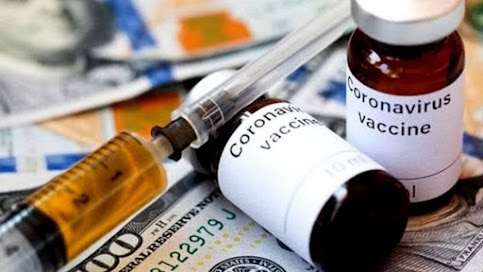1. What is a vaccine? How does that happen?
2. How does the body work after taking the vaccine?
3. Are the side effects of the vaccine actually beneficial?
4. Should I get vaccinated?
5. Can coronary heart disease occur even after vaccination?
6. Rumors about the vaccine.
1. What is a vaccine?
Simply put, a vaccine is a dormant or dead incarnation of a virus or bacteria.
How does it happen?
2. How does the body work after taking the vaccine?
The main thing in our body is blood. In this blood are our three soldiers. One is the blood cells flowing in the blood, (RBC which provides oxygen to the lungs), the other is the white blood cells (WBC which protects against diseases.) And the third is the trachea (Pletellets which help the blood to clot differently.)
Now the whole game is about immunity. Let us compare this immune system with the Indian Army! Just like the Air Force, Navy and Army are in the army!
When infected with any virus, our white blood cells challenge an unknown enemy. Protects the body by fighting against it. These white soldiers of ours are very intelligent! It remembers the fighting enemy (virus) in memory. It collects all the information about its behavior, its damage, its fight and gives it to our defense system i.e. the immune system which is fighting against diseases. As a result, our body produces antibodies to the disease.
Now come to the vaccine.
Now come to the vaccine.
3. Are the side effects of the vaccine really beneficial?
The answer is yes.! But in fact it is not just a side effect of the vaccine.
As described above, when the dead virus in the vaccine enters the body through injection, our body-white cells challenge it as an enemy. The result of this challenge is fever / tingling / pain.
In fact, fever after receiving the vaccine is not a side effect but a welcome process that indicates that the vaccine is having an effect and that the body has responded appropriately.
This can happen four to six hours after the vaccine is given. Will there be a fever or not? Will it tingle or not? Many of these effects depend on the individual's effect and the effectiveness of the vaccine. So don't panic if this happens one day after taking the vaccine. It is a positive reaction in the body.
4. Should a vaccine be given?
The answer is a resounding 'yes'.
Anyone can get vaccinated if they do not have a serious illness. Those who have high blood pressure, diabetes, thyroid should see a doctor and get a special vaccine under their supervision and instructions to avoid serious side effects if the corona is caught. The advantage of getting the vaccine is that even if you get the corona later, the effect is not very special and survival is easy. Annoyance has to be reduced.
5. Can coronavirus occur even after vaccination?
This is a vaccine, not a blessing of immortality! The body usually begins to produce antibodies against the disease within a few weeks after the first and second doses of the vaccine. It is not possible to get vaccinated today and become an antibody today. It can take about fifteen to fifty days for the body to make antibodies after the vaccine. Therefore, even after taking the vaccine, if we are not careful, corona can occur in one and a half to two months.
The strong advantage of the vaccine is that it can definitely prevent serious side effects if taken. In addition, many vaccines such as measles, chicken pox, rabies, etc. have been given to us since childhood. Vaccines have advantages, not disadvantages.
Secondly, there is currently no alternative but vaccines. In the coming years there will be a need for more effective vaccines against corona and medicine in tablet form. Until then, living with Corona would seem so normal that even a one-time lockdown might seem ridiculous, despite the lack of medication that was needed at the time.
Read More :: વેક્સીન શું છે.? એ કેવી રીતે બને?
Read More :: 8 VS Code Plugins To Improve Your Productivity
Tags
corona vaccine
corona virus vaccine
coronavirus latest news gujarat
coronavirus statistics
coronavirus vaccine
coronavirus vaccines





